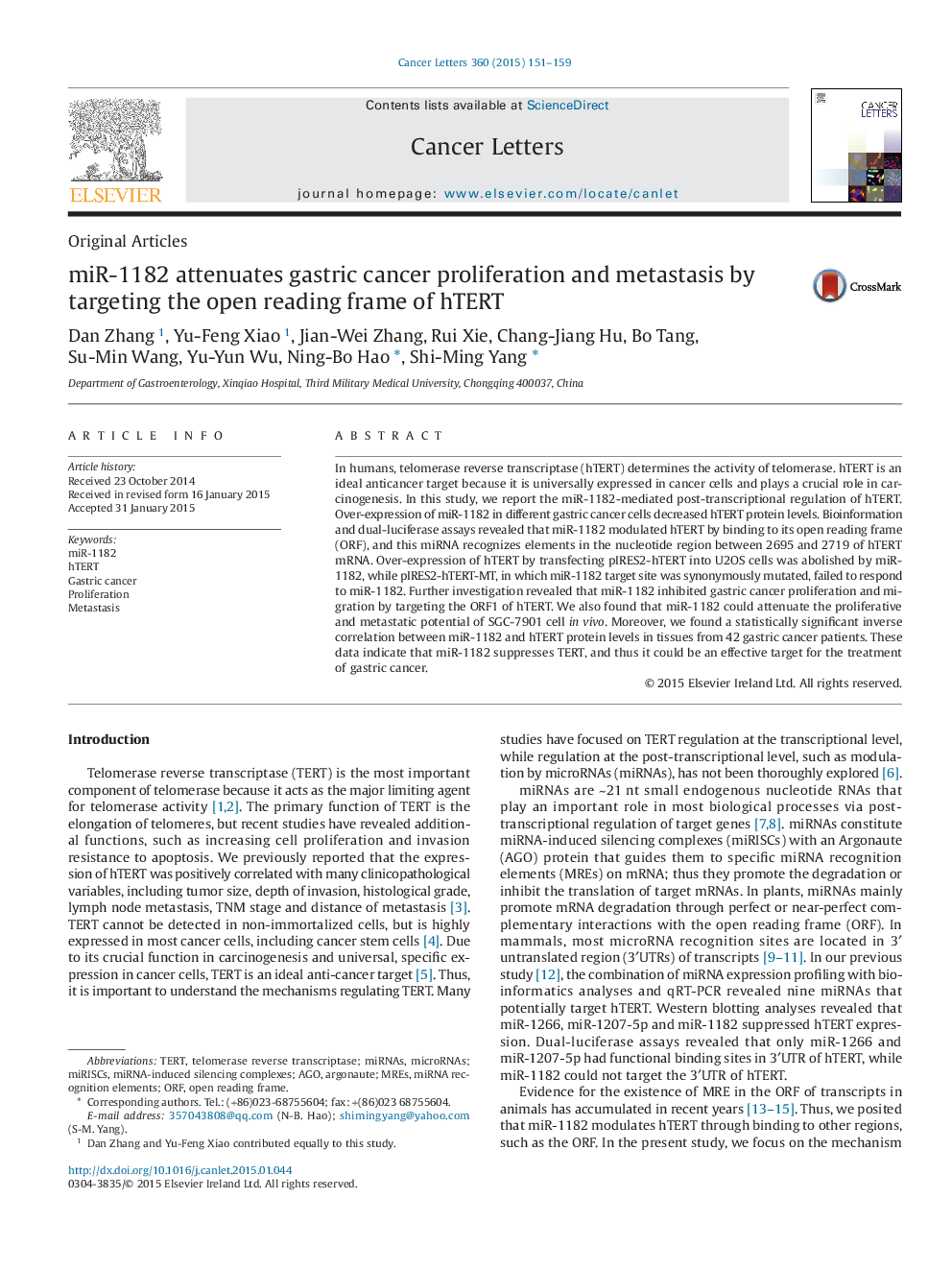| Article ID | Journal | Published Year | Pages | File Type |
|---|---|---|---|---|
| 8435448 | Cancer Letters | 2015 | 9 Pages |
Abstract
In humans, telomerase reverse transcriptase (hTERT) determines the activity of telomerase. hTERT is an ideal anticancer target because it is universally expressed in cancer cells and plays a crucial role in carcinogenesis. In this study, we report the miR-1182-mediated post-transcriptional regulation of hTERT. Over-expression of miR-1182 in different gastric cancer cells decreased hTERT protein levels. Bioinformation and dual-luciferase assays revealed that miR-1182 modulated hTERT by binding to its open reading frame (ORF), and this miRNA recognizes elements in the nucleotide region between 2695 and 2719 of hTERT mRNA. Over-expression of hTERT by transfecting pIRES2-hTERT into U2OS cells was abolished by miR-1182, while pIRES2-hTERT-MT, in which miR-1182 target site was synonymously mutated, failed to respond to miR-1182. Further investigation revealed that miR-1182 inhibited gastric cancer proliferation and migration by targeting the ORF1 of hTERT. We also found that miR-1182 could attenuate the proliferative and metastatic potential of SGC-7901 cell in vivo. Moreover, we found a statistically significant inverse correlation between miR-1182 and hTERT protein levels in tissues from 42 gastric cancer patients. These data indicate that miR-1182 suppresses TERT, and thus it could be an effective target for the treatment of gastric cancer.
Keywords
Related Topics
Life Sciences
Biochemistry, Genetics and Molecular Biology
Cancer Research
Authors
Dan Zhang, Yu-Feng Xiao, Jian-Wei Zhang, Rui Xie, Chang-Jiang Hu, Bo Tang, Su-Min Wang, Yu-Yun Wu, Ning-Bo Hao, Shi-Ming Yang,
